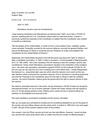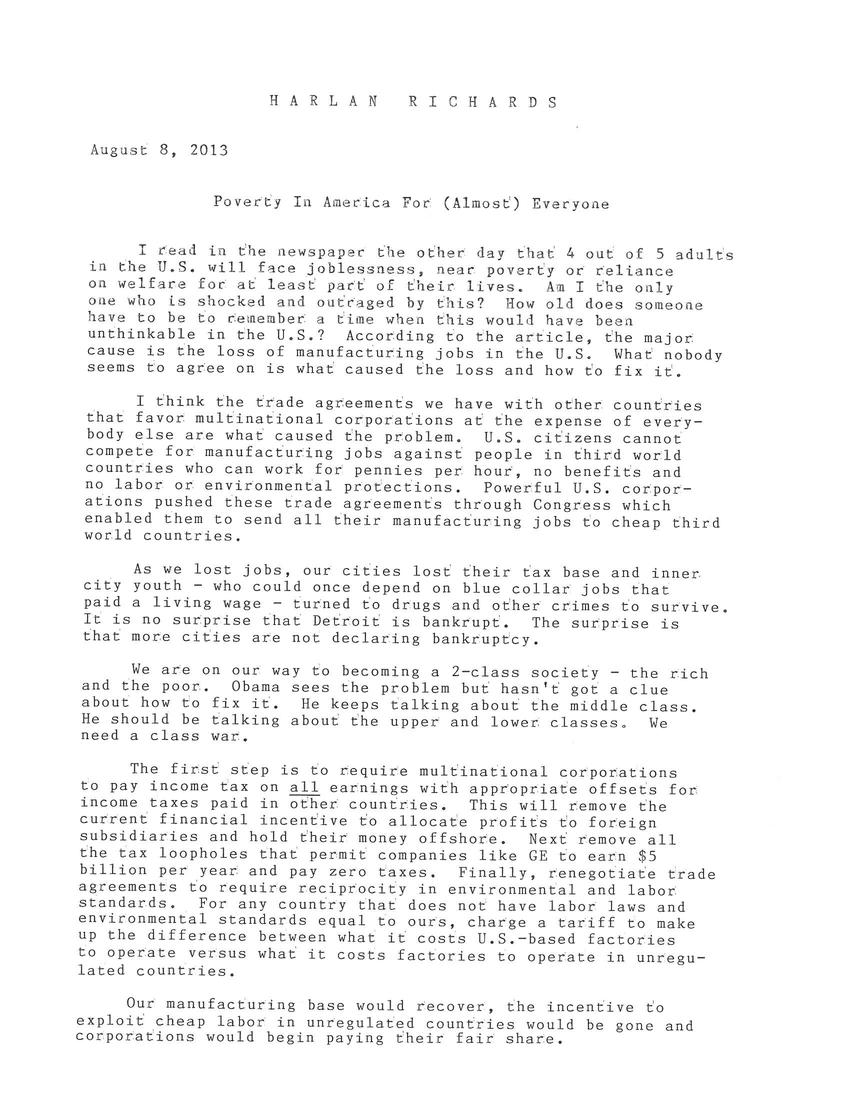
Transcription
HARLAN RICHARDS
August 8, 2013
Poverty in America For (Almost) Everyone
I read in the newspaper the other day that four out of five adults in the US will face joblessness, near poverty, or reliance on welfare for at least part of their lives. Am I the only one who is shocked and outraged by this? How old does someone have to be to remember a time when this would have been unthinkable in the US? According to the article, the major cause is the loss of manufacturing jobs in the US. What nobody seems to agree on is what caused the loss and how to fix it.
I think the trade agreements we have with other countries that favor multinational corporations at the expense of everybody else are what caused the problems. US citizens cannot compete for manufacturing jobs against people in third world countries who can work for pennies per hour, no benefits, and no labor or environmental protections. Powerful US corporations pushed these trade agreements through Congress which enabled them to send all their manufacturing jobs to cheap third world countries.
As we lost jobs, our cities lost their tax base and inner city youth—who could once depend on blue collar jobs that paid a living wage—turned to drugs and other crimes to survive. It is no surprise that Detroit is bankrupt. The surprise is that more cities are not declaring bankruptcy.
We are on our way to becoming a two-class society—the rich and the poor. Obama sees the problem but hasn't got a clue about how to fix it. He keeps talking about the middle class. He should be talking about the upper and lower classes. We need a class war.
The first step is to require multinational corporations to pay income taxes on all earnings with appropriate offsets for income taxes paid in other countries. This will remove the current financial incentive to allocate profits to foreign subsidiaries and hold their money offshore. Next remove all the tax loopholes that permit companies like GE to earn $5 billion per year and pay zero taxes. Finally, renegotiate trade agreements to require reciprocity in environmental and labor standards. For any country that does not have labor laws and environmental standards to ours, charge a tariff to make up the difference between what it costs US-based factories to operate versus what it costs factories to operate in unregulated countries.
Our manufacturing base would recover, the incentive to exploit cheap labor in unregulated countries would be gone, and corporations would begin paying their fair share.
Other posts by this author
|
2021 jun 25

|
2021 may 25

|
2021 apr 23

|
2021 feb 19

|
2021 feb 17

|
2021 feb 15

|
More... |


Replies